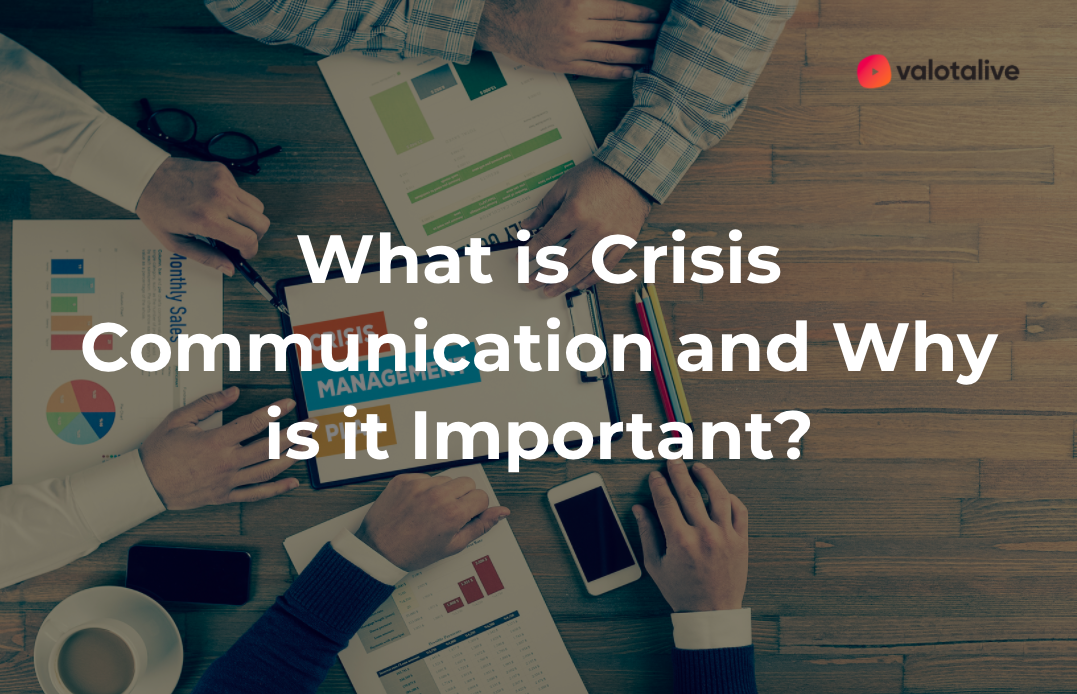COVID-19 sent the world into a panic – forcing millions of businesses to stop and reformulate a plan of action to survive shutdowns, stay at home orders, etc. This drove home the importance of having a crisis management plan and a crisis communication plan. If you found yourself asking, “why is crisis communication important?” you need to take a moment to understand what crisis communication is.
Crisis communication is the circulation of information by a company to address any crisis that impacts customers and the brand and its reputation.
Why is Crisis Communication Important?
Crisis communication is important because it outlines your company’s response to different crises, including:
- Financial
- Natural
- Organizational
- Personnel
- Technological
Now – this is not an extensive list. A crisis can be anything that could potentially stall or completely halt your businesses and its activities or services provided.
For example, the COVID-19 pandemic is considered a natural crisis that requires businesses globally to halt operations. Without a crisis communication plan in place, a company may find themselves struggling with how to communicate with their employees and their customers, leading to frustrations all around.
So, what does an effective crisis communication plan include? According to Ready.gov, handle your crisis communication plan by implementing a communications hub. This hub should contain all relevant contact information, customizable message drafts, and more to ensure your crisis response team can move quickly.
Source: Ready.gov
Your plan should detail who is responsible for contacting which departments, how those departments respond, and in what time frame. Remember – time is everything in these situations.
Effective Crisis Communication Examples and Tips
Now that you’ve got an answer to the question, “why is crisis communication important,” it’s time to start building your crisis communication plan. Not quite sure where to start? Here are a few tips you’ll want to keep in mind:
Plan for Frequent, Relevant Communications
When planning your crisis communications, you want to plan on frequent communications. Why – because this keeps your audience in the loop. However, there is a fine line between putting out updates and simply following the herd.
For example, when COVID-19 hit, consumers were inundated with the same email response from dozens of retailers. The fact that they responded all around the same time wasn’t the problem. It was the lack of unique information.
The typical COVID-19 response email looked something like this, with the same information presented in the highlighted sections:
Source: Really Good Emails
While this information is important, brands worldwide used the same copy and pasted information, leaving consumers feeling bombarded with “useless” facts.
Instead, focus on sharing content that pertains specifically to your brand and only include the generic information if it is an absolute must.
Another great example is Walmart’s COVID-19 Response web page. Their “Here for You” page keeps consumers up to date on all the company’s actions, intentions for the community, their brand, and all staff throughout the pandemic.
Be Transparent in Your Communications
Amid a crisis, there is no room for sugar coating anything. While your intentions may be pure, consumers want nothing but the cold truth, so they know what is going on. A great example of transparency can be seen in this email example from Orange Theory in response to the initial COVID-19 outbreak:
Source: Orange Theory
Encourage Feedback
Yes – communicating with your consumers and staff is vital to any crisis communication plan; however, it should never be a one-way effort. Take the necessary time to check in on your consumers and encourage feedback on:
- What kind of information they’d like to see from you
- How often they’d like updates
- How you can help them during trying times, etc.
Opening this vital line of communication will help you foster stronger relationships with your audience, and with this relationship comes trust and brand loyalty.
Effective Communication During a Crisis is Critical
Open, honest, effective communication is crucial during any crisis. It doesn’t matter if it’s using digital signage to communicate with your staff or relying on digital media channels to help you communicate with staff and consumers alike.
Stay ahead of the game by having a crisis communication and management plan at the ready.



